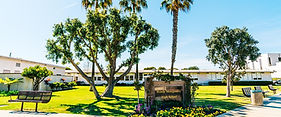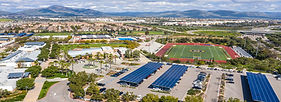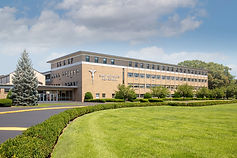
USA High School
U.S. High School Application Process and Timeline
Benefits
More and more Taiwanese students are opting to attend private high schools in the United States, aiming to access higher-quality education and pave the way for a successful future.
But what kind of learning environment can American private high schools truly offer?
If you haven’t considered this question in depth, don’t worry — BEAR is here to guide you through it!
Educational Quality
Day schools offer international students the opportunity to study during the day and live with a nearby American host family (homestay). This daily commute between home and school not only provides an authentic cultural experience but can also reduce annual costs by approximately USD $10,000–$20,000 compared to traditional boarding schools.
Diverse Curriculum
American high schools provide an extensive and varied curriculum, enabling students to tailor their education to their personal interests and long-term objectives. This academic flexibility fosters individual growth and equips students with the skills and knowledge necessary for success in higher education and beyond.


High Schools in USA
There is a wide variety of high schools in the United States. Many private schools serve as legal guardians for international students under the age of 18, providing not only an academic environment but also meals and on-campus accommodation. These are known as boarding schools, which share many similarities with boarding schools in Taiwan. In addition to boarding schools, the U.S. offers several other types of high school options as well.
Day School vs. Boarding School: Based on Housing Options
Day School
日間中學顧名思義就是指國際生在完成日間的學習後,到就近的美國寄宿家庭 (Homestay) ;每天往返於家庭和學校之間。相較之下,選擇日間中學的學生每年可節省 USD$1-2 萬的費用。
Boarding School
As mentioned earlier, many private schools provide students with accommodation and all daily necessities. Students have all their meals and carry out their studies within the school premises, only leaving campus on weekends. There are two main reasons to consider boarding schools: 1.For students who lack strong self-discipline or independent living skills, boarding schools offer more guidance and care from teachers, helping them adapt better to academic and campus life. 2.American host families serving as guardians may not always have the time to oversee a student’s academic and daily life, nor are they necessarily skilled at managing the behavior of teenagers going through adolescence.
Public vs. Private High Schools: Based on Openness to International Students
Public Junior High School
In the United States, public high schools only admit international students under an "exchange student" status, with a maximum duration of one academic year. Students in grades 9 through 12 are eligible to apply for this program.
Private Junior High School
美國的公立高中僅接受外國人以「交換學生」的身份入學,且最多只能待滿一年; 9-12 年級的學生皆可申請。

Classified by Religious Affiliation: Religious High School
Religious Junior High School
The United States is a highly religious nation, which is why there are both religious and non-religious secondary schools. Many people have misconceptions about religious schools, believing that students must adhere to a specific faith; in reality, students are not necessarily required to join the religion. It’s important to note that religious schools do include some theology courses, and some may even require them for credit, but they do not force students to convert. In the U.S., the denominational backgrounds of religious schools are primarily Christian, Catholic, and Episcopal. Since 82% of Americans practice some form of religion, religious schools can help international students integrate into mainstream American society. These schools often establish certain moral guidelines for student behavior, which can be beneficial for ethical discipline. If parents are concerned that America’s open culture might influence their children, they may want to consider religious schools.
Non-Religious Junior High School
Similar to regular secondary schools.
Classified by Educational Focus: Military Junior High Schools & Arts Junior High Schools
Military Junior High Schools
Military academies in the United States are not institutions designed to train students to become military officers, but rather utilize a structured, disciplined environment to cultivate young men (and, in some coeducational schools, young women) into individuals of character, self-discipline, and integrity. Most military academies in the U.S. are all-boys schools, though some are coed, accepting students in grades 9–12. These schools emphasize essential life skills such as learning under pressure, time management, teamwork, and resilience. Known as training grounds for future military officers, they also serve as strong centers of patriotism, where students develop heightened confidence through challenges that test both their willpower and capabilities. The rigorous yet formative experience at military academies helps shape well-rounded individuals prepared for leadership roles in various fields, not just the armed forces.
Arts Junior High Schools
Public arts high schools in the United States, often government-supported to nurture creative talents, rarely admit international students. These institutions specialize in finely categorized disciplines such as theatrical arts, film production, visual arts, and comparative arts. While cultivating artistic expertise, they maintain strong emphasis on academic education. Families with sufficient financial means seeking enriched artistic environments may consider prestigious private arts high schools. Graduates of such schools often gain significant advantages for admission to American arts universities. Annual costs for studying at U.S. arts high schools start at approximately $50,000 USD for tuition, with additional living expenses ranging from $20,000 to $30,000 USD. Notably, admission thresholds for arts programs remain accessible—students requiring language improvement can concurrently develop professional skills while enhancing English proficiency. Applicants need only pass specialized entrance assessments and submit portfolios, with basic communication skills sufficient to begin studies.
Introduction of U.S. Junior High School Education System
The U.S. high school system is nearly identical to that of neighboring Canada and is also quite similar to Taiwan's educational structure.
Just like in Taiwan, students in the U.S. progress from Grade 1 through Grade 12, for a total of 12 years of basic education. High school consists of four years, covering Grades 9 through 12.
Most high schools follow a two-semester system: the first semester begins in late August or early September, while the second semester starts in January. Admissions are based on both the student’s age and academic level; students who exceed the age limit are generally not eligible to apply.
One key difference is that U.S. high schools operate on a credit-based system. Students are placed into grade levels based on entrance exam results. However, because of the credit system, students may be assigned to higher or lower-level classes for specific subjects depending on their academic performance, rather than staying strictly within their grade level.


Private School FAQ
Frequently asked questions
Students often have many questions when applying to U.S. high schools. Let BEAR walk you through the key insights!
Do private high schools always require boarding? Of course not.
In terms of cost efficiency, day schools are a more viable choice.
As everyone knows, boarding schools are quite expensive, with annual costs ranging from approximately $40,000 to $60,000 USD—and tuition fees increase slightly each year. In contrast, attending a private day high school typically costs between $20,000 and $30,000 USD per year. This means families can save $10,000 to $20,000 USD annually by choosing a private day school over a boarding school.
Impeccable teaching quality.
In the U.S., many private high schools are affiliated with religious institutions; about 80% of private day schools are established with church support. Primarily serving local parishioners, these schools operate on the principle of "giving back to the community," making their tuition significantly more affordable than boarding schools.
As for educational quality, it is impeccable. These schools far surpass public schools—which often have mixed student populations—in terms of facilities, student-to-teacher ratios, flexible and diverse curricula, and individualized teacher attention. Most notably, their acceptance rates into prestigious universities are much higher than those of public schools.
Students gain extensive exposure, facilitating the expansion of their perspectives.
For international students attending private day high schools, since the schools do not provide on-campus housing, they must live with local families—commonly known as "Homestay." Staying in a Homestay gives students more opportunities to engage with American society, allowing them to better understand American culture, customs, social norms, and principles of interaction. This experience is undoubtedly highly beneficial for the students' future development.
Enhance English language proficiency rapidly
Students attend classes at school during the day, where they receive an all-English curriculum. After school, they return home and must communicate with their homestay family in English. Living and learning in this immersive English environment every day allows students to naturally and quickly improve their English language skills. Rapidly enhancing English proficiency is crucial for adapting to the American curriculum and achieving academic success.
Low proportion of internaitonal students.
Many Taiwanese parents worry that if their children study abroad in an "international school," they may encounter too many Chinese students or other non-native English speakers, which could hinder rapid English improvement and cultural integration. In contrast, private day high schools primarily enroll local students, effectively avoiding this issue.




